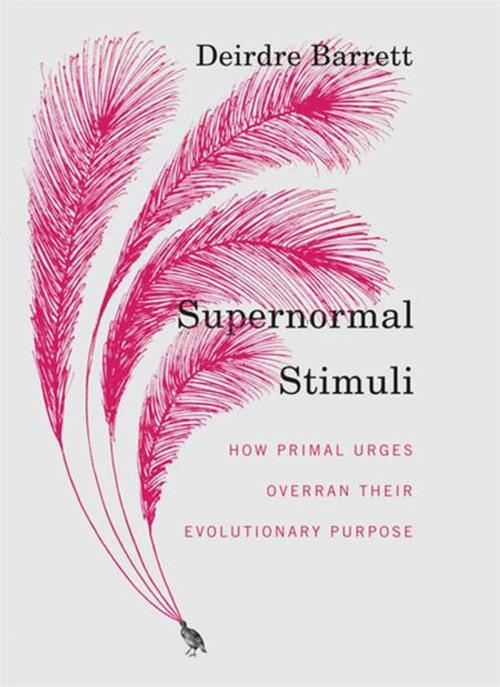Supernormal Stimuli: How Primal Urges Overran Their Evolutionary Purpose
Nonfiction, Science & Nature, Science, Biological Sciences, Evolution| Author: | Deirdre Barrett | ISBN: | 9780393077339 |
| Publisher: | W. W. Norton & Company | Publication: | February 22, 2010 |
| Imprint: | W. W. Norton & Company | Language: | English |
| Author: | Deirdre Barrett |
| ISBN: | 9780393077339 |
| Publisher: | W. W. Norton & Company |
| Publication: | February 22, 2010 |
| Imprint: | W. W. Norton & Company |
| Language: | English |
A Harvard psychologist explains how our once-helpful instincts get hijacked in our garish modern world.
Our instincts—for food, sex, or territorial protection— evolved for life on the savannahs 10,000 years ago, not in today’s world of densely populated cities, technological innovations, and pollution. We now have access to a glut of larger-than-life objects, from candy to pornography to atomic weapons—that gratify these gut instincts with often-dangerous results. Animal biologists coined the term “supernormal stimuli” to describe imitations that appeal to primitive instincts and exert a stronger pull than real things, such as soccer balls that geese prefer over eggs. Evolutionary psychologist Deirdre Barrett applies this concept to the alarming disconnect between human instinct and our created environment, demonstrating how supernormal stimuli are a major cause of today’s most pressing problems, including obesity and war. However, Barrett does more than show how unfettered instincts fuel dangerous excesses. She also reminds us that by exercising self-control we can rein them in, potentially saving ourselves and civilization.
A Harvard psychologist explains how our once-helpful instincts get hijacked in our garish modern world.
Our instincts—for food, sex, or territorial protection— evolved for life on the savannahs 10,000 years ago, not in today’s world of densely populated cities, technological innovations, and pollution. We now have access to a glut of larger-than-life objects, from candy to pornography to atomic weapons—that gratify these gut instincts with often-dangerous results. Animal biologists coined the term “supernormal stimuli” to describe imitations that appeal to primitive instincts and exert a stronger pull than real things, such as soccer balls that geese prefer over eggs. Evolutionary psychologist Deirdre Barrett applies this concept to the alarming disconnect between human instinct and our created environment, demonstrating how supernormal stimuli are a major cause of today’s most pressing problems, including obesity and war. However, Barrett does more than show how unfettered instincts fuel dangerous excesses. She also reminds us that by exercising self-control we can rein them in, potentially saving ourselves and civilization.















